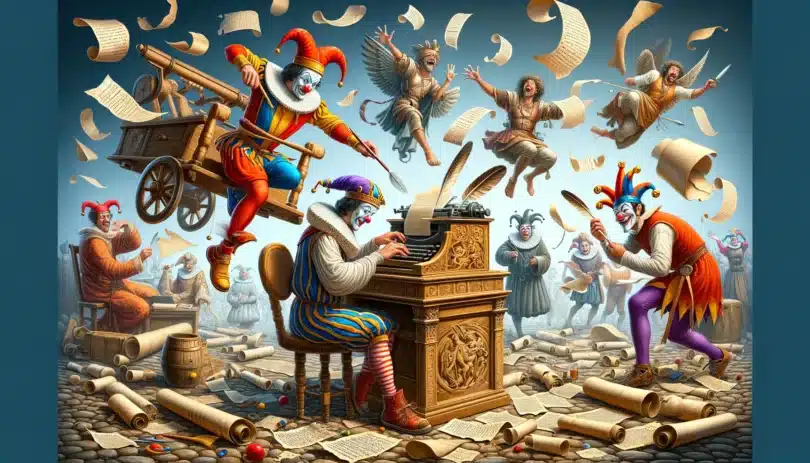In a revelation that has historians and pranksters alike reeling, recent discoveries from ancient Roman scrolls and medieval manuscripts suggest that April Fools’ Day, the long-celebrated tradition of jest and jocularity, was originally intended to be observed on the last day of April, not the first. This historical oversight, buried for centuries among misinterpreted texts and lost translations, sheds new light on the origins of a day marked by trickery and laughter.
When April Fools’ Day Was Meant to Be Celebrated?
The findings, published in the prestigious “Journal of Historical Anomalies,” detail how early celebrations of spring, renewal, and lightheartedness culminated in a day of mirth and mischief. According to Dr. Aloysius Chronologer, the lead researcher on the project, “The tradition of ending the month of April with a day of frolic and jest is deeply rooted in pre-modern European festivals. However, due to a series of transcription errors, calendar reforms, and linguistic misinterpretations, the observance of this day shifted to the beginning of April.”
The mix-up appears to have occurred during the transition from the Julian to the Gregorian calendar, compounded by the varying adoption dates of the new calendar across Europe. This period of time was marked by confusion and the misalignment of dates, which, as Dr. Chronologer suggests, could easily have led to the displacement of traditional festivities by several weeks.
The article goes on to describe how the jests and pranks now associated with April 1st were originally part of “Vernalis Festum,” a celebration of spring’s end. Activities included elaborate hoaxes, the exchange of fanciful gifts, and public festivities where townspeople would don disguises and mock various societal roles, much like the modern practice of April Fools’ Day.
Despite this groundbreaking research, the suggestion to realign April Fools’ Day with its “original” date has been met with mixed reactions. Some traditionalists argue for the preservation of the status quo, citing centuries of cultural practice and the impracticality of changing a widely recognized holiday. Meanwhile, others see an opportunity to extend the period of springtime revelry and advocate for a return to historical accuracy.
“It’s fascinating to think how a simple calendrical error could shape centuries of tradition,” said Dr. Chronologer. “While it’s unlikely that we’ll see a global shift in the observance of April Fools’ Day, this discovery invites us to reflect on the origins and meanings of our cultural practices.”
In light of these findings, some communities have expressed interest in adopting the last day of April as a secondary day of jest, proposing a “bookend” approach to a month already famed for its capricious weather and spirit of renewal.
Whether or not the world will embrace a second day of trickery remains to be seen, but this intriguing slice of history adds depth and complexity to one of the most lighthearted days on the calendar. As April wanes, perhaps more than a few extra pranks and jests will find their way into the springtime air, honoring a long-lost tradition that was nearly forgotten.
*** This article is an April Fool’s Day joke ***









